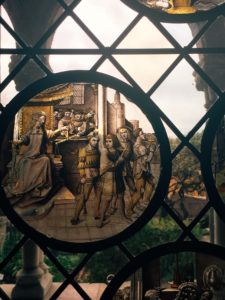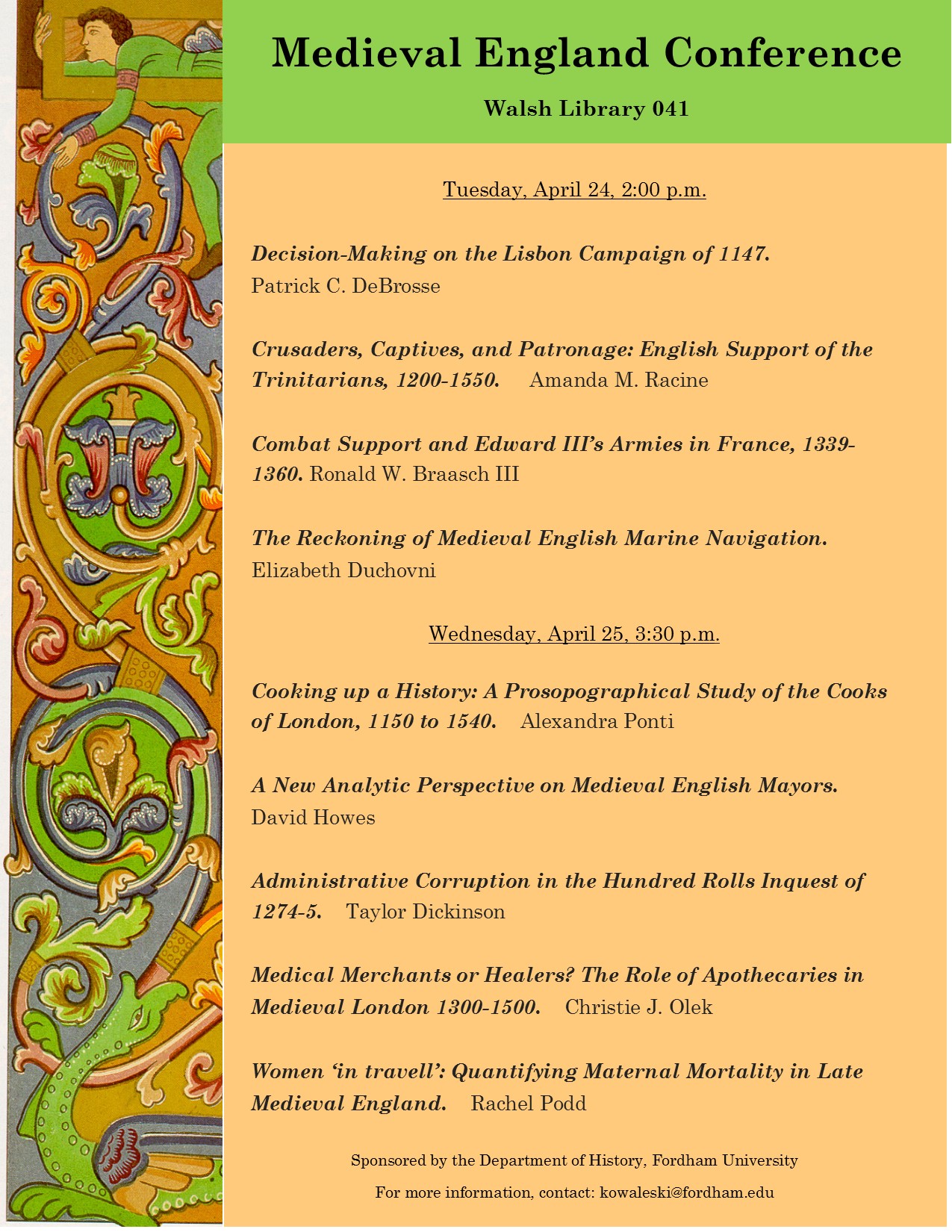
Ronald Braasch
Ronald Braasch recently published an article titled: “The Skirmish: A Statistical Analysis of Minor Combats During the Hundred Years’ War, 1337-1453”in the Journal of Medieval Military History XVI (June, 2018). Ron is seeking to shed light on a neglected aspect of medieval warfare and discover what impact these smaller fights had on the conduct of warfare during the Hundred Years’ War. Skirmishes existed somewhere between a battle and duel, occurred during all varieties of locations and environments, and formed an integral martial function between medieval combatants. Moreover, skirmishes were a common feature during the Hundred Years’ War as the chroniclers wrote so much about them. As a case study, Ron’s work examines the chronicles of Jean le Bel, Jean Froissart, Enguerrand de Monstrelet, and Matthieu d’Escouchy, whose narratives collectively span the entirety of the conflict. By examining chronicles quantitatively, Ron’s research indicates that the outcomes of skirmishes could influence the strategies of military leaders and that indiscipline was a key component in French military losses against English, Burgundian, and various other opponents. Ron is entering the first year of his PhD in History, where he is studying the roles of combat support personnel in the armies of Edward III.
Full Citation: “The Skirmish: A Statistical Analysis of Minor Combats During the Hundred Years’ War, 1337-1453.”Journal of Medieval Military History XVI, (June, 2018): 123-157.

 On April 24th and 25th, the History Department sponsored the Medieval England Conference that showcased the research done in the Graduate ProSeminar Course led by Dr. Maryanne Kowaleski. This conference included papers by members of the History Department, as well as the Center for Medieval Studies. Patrick DeBrosse, Rachel Podd, Amanda Racine, and Ron Braasch were the 3 doctoral and master’s students, respectively, that presented their research. See a list of all the presentations, as well as some pictures, below.
On April 24th and 25th, the History Department sponsored the Medieval England Conference that showcased the research done in the Graduate ProSeminar Course led by Dr. Maryanne Kowaleski. This conference included papers by members of the History Department, as well as the Center for Medieval Studies. Patrick DeBrosse, Rachel Podd, Amanda Racine, and Ron Braasch were the 3 doctoral and master’s students, respectively, that presented their research. See a list of all the presentations, as well as some pictures, below. 




